
To combat climate change, the world needs to pivot away from fossil fuels. But building battery electric vehicles and infrastructure for renewable energy will require enormous amounts of minerals and resources.

As renewable energy technologies progress, disparities in access to these technologies — and indeed, access to energy itself — persist. Poorer and historically disadvantaged groups spend disproportionate amounts of their incomes on energy costs, while being more prone to shut-offs, more reliant on the grid, and less able to affect policy change. University of Michigan experts, at centers like the Urban Energy Justice Lab (UEJ) and Poverty Solutions, are researching the intersection between energy access, economic mobility, and social justice, and then engaging with communities near and far to pursue more equitable approaches.

To combat climate change, the world needs to pivot away from fossil fuels. But building battery electric vehicles and infrastructure for renewable energy will require enormous amounts of minerals and resources.

Small modular nuclear reactors, or SMRs, could help the U.S. meet emissions goals while also satisfying growing energy demands. Although the U.S. has not powered up an SMR yet due to some deployment challenges, cost and complexity, new research from the University of Michigan shows that they are an economically viable option. Max Vanatta, School for Environment and Sustainability (SEAS) doctoral student is the lead author. The other authors are SEAS Assistant Professor Michael Craig and Robb Stewart, chief technology officer of Alva Energy.
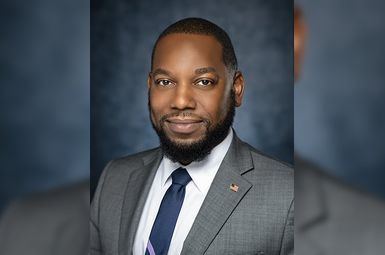
"Energy justice is this concept that really looks at how do communities participate in both the health environment and social impacts of our energy system, recognizing that the energy system has had certain burdens on communities. And so environmental justice is really saying that all communities, regardless of race and income and geography, should be afforded a clean environment."
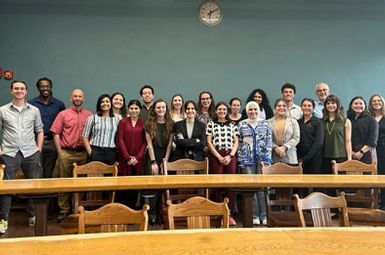
In collaboration with the Michigan Climate Action Network (MiCAN) and Michigan Environmental Justice Coalition (MEJC), a group of 20 selected U-M graduate students recently published a comprehensive report about Michigan’s public power options.
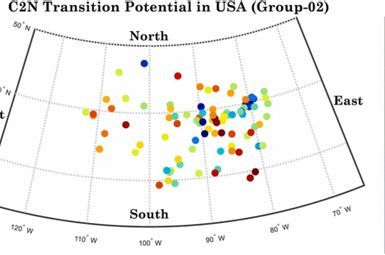
An assessment ranks the feasibility of converting 245 operational coal power plants in the U.S. into advanced nuclear reactors, providing valuable insights for policymakers and utilities to meet decarbonization goals, according to a new study by University of Michigan researchers.

Converting home heating systems from natural gas furnaces to electric heat pumps is seen as a way to address climate change by reducing greenhouse gas emissions. But a new U-M study of 51 Southeast Michigan households shows that switching to efficient, cold-climate heat pumps would increase annual utility bills by an average of about $1,100.
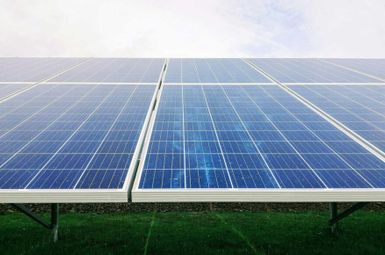
Among residents living within 3 miles of large-scale solar energy developments, positive attitudes about the projects outnumbered negative attitudes by a nearly 3-to-1 margin, according to a new survey of nearly 1,000 large-scale solar neighbors across the United States.
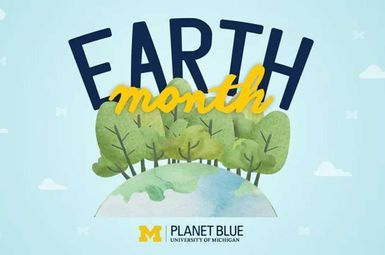
U-M is marking late March and all of April with a series of events focused on sustainability and climate action, continuing a tradition that began with the first “Teach-In on the Environment” in 1970—which grew into what is now known as Earth Day.

Improving the U.S. electricity grid is necessary to lower costs, boost reliability and help tackle climate change, but it will take some serious soul searching by the leaders of entities that control the grid.

Associate Professor Tony Reames will be returning to the University of Michigan School for Environment and Sustainability (SEAS) from his leave of absence at the Department of Energy (DOE), where he served as the Principal Deputy Director for State and Community Energy Programs and the DOE’s Deputy Director for Energy Justice. Reames will become the Tishman Professor of Environmental Justice at SEAS and serve as the new Director of the SEAS Detroit Sustainability Clinic, effective January 2024.
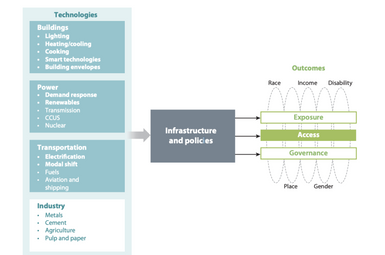
Because large disparities in access to green technologies exist between countries in the Global North and the Global South and among different demographic groups within those countries, it’s important to focus on equity in access to energy services and not simply on energy technologies, according to a new U-M review paper.
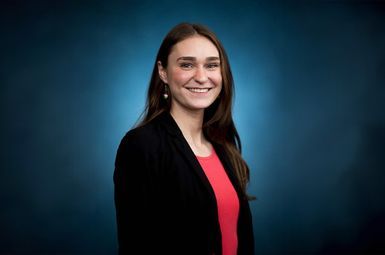
“Over a third of the energy we use in our homes goes to waste. That’s a lot! Programs like TCLP’s are essential in helping residents save money, support their health, and protect the environment.”
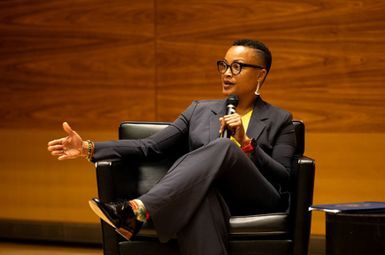
We are in an “extraordinary moment” to create an equitable clean energy future. And Michigan, like other states, is an “essential part” of bringing forth that future.
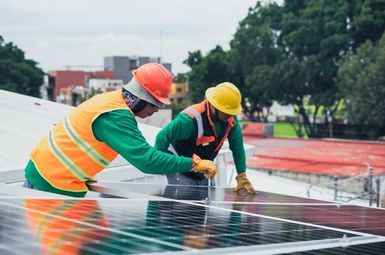
Engaging researchers from nine units across U-M and several other academic institutions, along with multisectoral partners, the projects will explore community solar, agrivoltaics, carbon-neutral building materials, aviation fuel waste reduction, and sustainable archeology.
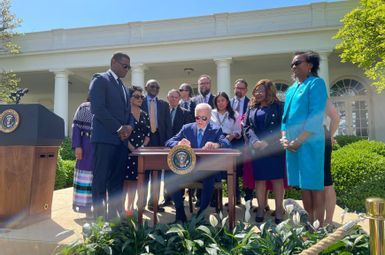
President Biden signed a historic executive order called Revitalizing Our Nation’s Commitment to Environmental Justice for All, which will direct federal agencies to focus on confronting longstanding environmental injustices. Kyle Whyte, the George Willis Pack Professor at the U-M School for Environment and Sustainability (SEAS), a U.S. Science Envoy, and a member of the White House Environmental Justice Advisory Council, served as an advisor on the development of the executive order.

The Graham Sustainability Institute’s Carbon Neutrality Acceleration Program (CNAP) announced $1,160,000 in funding for six new faculty research projects. They tackle a range of carbon neutrality topics and augment the CNAP portfolio, which addresses six critical technological and social decarbonization opportunities: energy storage; capturing, converting, and storing carbon; changing public opinion and behavior; ensuring an equitable and inclusive transition; material and process innovation; and transportation and alternative fuels.

Hydrogen is an important energy carrier that can play a key role in reducing carbon emissions from heavy-duty vehicles and aviation, heating and distributed power, and industrial applications like steelmaking, glassmaking and semiconductor manufacturing. With growing interest around wider adoption of hydrogen and its potential economic and environmental benefits, U-M has launched a new initiative to support and catalyze multidisciplinary research involving the universe’s lightest and most abundant element.
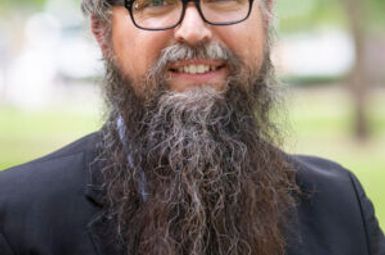
U-M environmental justice expert Kyle Whyte is one of seven distinguished scientists in the country named U.S. Science Envoys by the Department of State. Through the Science Envoy Program, eminent U.S. scientists and engineers travel to foreign countries as private citizens, leveraging their expertise and networks to forge connections and identify opportunities for sustained international cooperation.
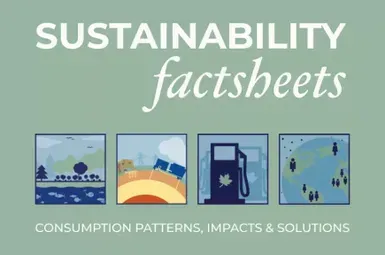
Did you know that the average North American household uses roughly 240 gallons of water daily? Or that the Department of Energy estimates that 75% of U.S. energy will come from fossil fuels in 2050, which is widely inconsistent with IPCC carbon reduction goals? Did you know that just 16¢ of every dollar spent on food in 2020 went back to the farm, whereas, in 1975, it was 40¢?

To bolster a just transition to cleaner, more resilient energy systems, the U-M Energy Equity Project has released the first standardized national framework for comprehensively measuring and advancing energy equity. Energy equity recognizes the historical and cumulative burdens of the energy system borne by frontline and low-income communities.
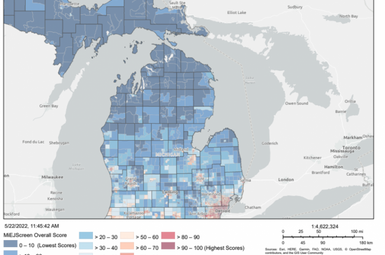
Because environmental justice screening tools will affect community members impacted by disproportionate environmental burdens, soliciting input from the environmental justice community is crucial to developing and using screening tools, according to a new study from U-M.
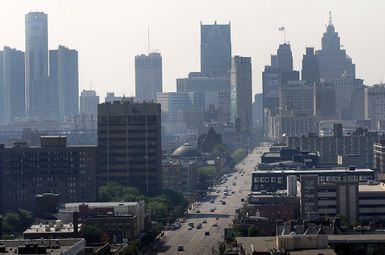
Two years into the pandemic, 72% of Detroit residents say their financial situation has stabilized or improved compared to a year ago, and there's evidence that stimulus checks and the expanded Child Tax Credit played a role in reducing Detroiters' experiences of economic hardship. Additionally, 17% of Detroiters reported experiencing one or more utility or service shut-offs in the last year, with the most common form being the disconnection of phone or internet service.
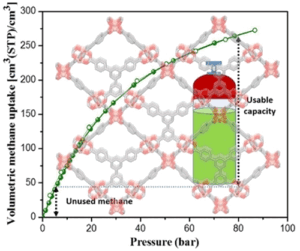
As the world turns its attention to electric vehicles as a replacement for gas-powered cars and trucks, some vehicles such as long-haul trucks and planes will need a bridge between gas and electric. Natural gas could be a viable alternative. It’s widely available and burns more cleanly than gasoline. There are even conversion kits already available to allow your passenger cars or long-haul trucks to run on natural gas, says Adam Matzger, a U-M professor of chemistry.
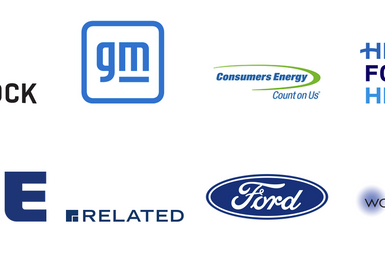
"As members of the Michigan Business Sustainability Roundtable (MBSR), convened by the Erb Institute at University of Michigan, we urge all Michiganders to come together in collaboration and support of Michigan’s movement toward a healthier and more sustainable economy."

“Educator and Activist” is a vivid account of Bryant’s journey as an educator and activist in the movements for civil rights, students’ rights, women’s rights, international peace, and a healthy environment for all. As a young professor, Bryant was chosen to launch U-M's pioneering Environmental Justice program.

U-M announced steps toward procuring 100% renewable purchased power, expanded plans for geothermal heating and cooling systems, and $10 million in funding for additional LED lighting in approximately 100 buildings across all three campuses. The announcements come as the university launches a progress-tracking dashboard — available online for interested members of the community — and $300 million in “green bonds” for projects that align with U-M carbon neutrality goals.
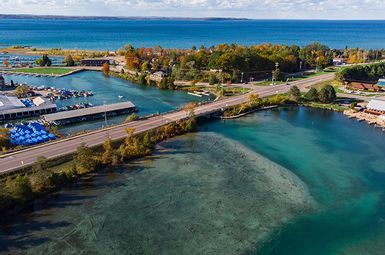
Five newly awarded catalyst grants from the Graham Sustainability Institute will fund projects designed to advance potential infrastructure solutions across energy, transportation, and the built environment. The projects will facilitate climate change adaptation, test products aimed to reduce carbon emissions, and foreground equity and justice in sustainability interventions.
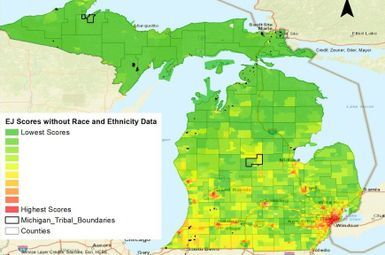
State-level environmental justice screening tools are being supported by environmental justice advocacy groups in Michigan and across the country, according to a new U-M study. These screening tools document the communities that are hardest hit by environmental injustices.

The School for Environment and Sustainability is welcoming two new members to its faculty: environmental justice experts Dr. Brandy Brown and Dr. Cedric Taylor.

The NorthLight Foundation and Dan and Sheryl Tishman have committed an $11.125 million gift to the U-M School for Environment and Sustainability to expand the school’s environmental justice efforts and impact at a pivotal time for social justice.
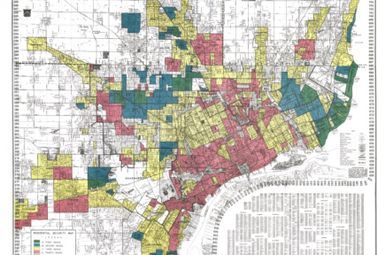
Homeownership has been a core value and aspiration for many American households over the last half century. However, beneath this ideal, there is a legacy of racist housing policies that left low-income individuals and people of color disproportionately exposed to the impacts of environmental burdens.
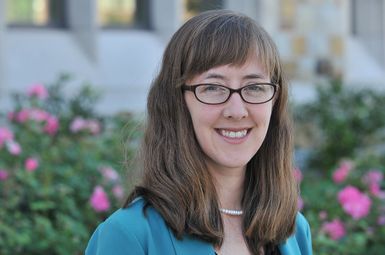
The push for consumers to go electric for their energy needs has significant environmental benefits as the world deals with the disruptive, deadly effects of climate change. Yet the economic burden of a big switch could fall more on lower-income, minority communities.

“We are not accustomed to thinking about equity in the context of innovation. But in recent years, we have begun to recognize that marginalized communities — including those who are low-income and those who come from historically disadvantaged communities of color — are often unable to access the benefits of science and technology, but may be disproportionately subject to the harms.”
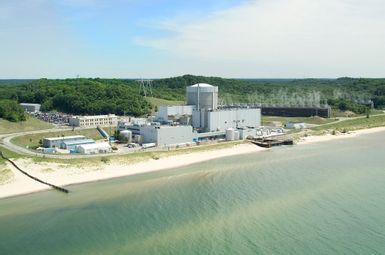
Like many regions across the country, southwestern Michigan is preparing for the closure of a nuclear power facility, the Palisades Nuclear Power Plant. The impact of this transition on a community can lead to reduced tax base, lost employment, reduction in services and an unused site.
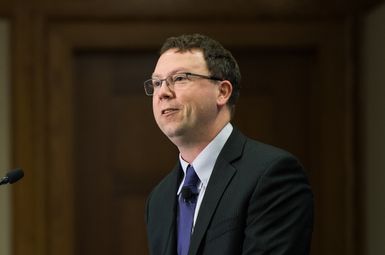
How will actions taken towards preventing climate change affect communities that rely on a fossil fuel economy? In a recent report titled "Mapping the US Energy Economy to Inform Transition Planning," Daniel Raimi, Ford School lecturer and fellow at Resources for the Future, explored the economic consequences of moving away from fossil fuels for those communities.
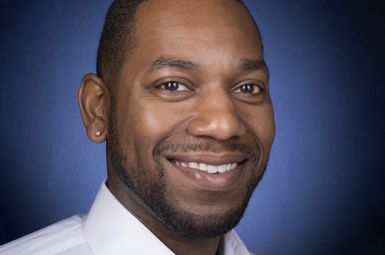
Dr. Tony Reames, an assistant professor at the School for Environment and Sustainability (SEAS), has been appointed a Senior Advisor to the Department of Energy’s Office of Economic Impact and Diversity. In this role, Reames will be responsible for energy justice policy and analysis to ensure energy investments and benefits reach frontline communities and Black, Indigenous, and other communities of color.

Despite widespread calls for a just transition to cleaner, more resilient energy systems, there isn’t a standardized measurement framework for evaluating the equity of clean energy programs. As a result, utility administrators, regulators, and energy advocates have been judging equity on an ad hoc basis. The Urban Energy Justice Lab at the U-M School for Environment and Sustainability announced a new program aimed at addressing this gap.
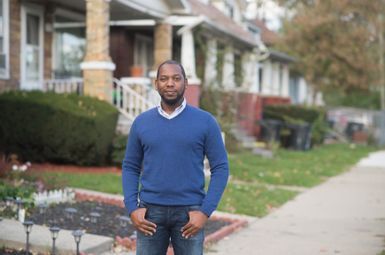
Earth Day is every day to folks like Tony Reames, a U-M assistant professor of environmental justice and sustainable systems who is at the forefront of the movement to create efficient, affordable and equitable energy systems.

Dominic Bednar, a PhD candidate in the U-M School for Environment and Sustainability (SEAS), was selected for a Fulbright Award to travel to Santiago, Chile, where he will study energy efficiency, energy poverty, and firewood use among residential areas.

Some Detroiters spend up to 30% of their monthly income on home energy bills, a sky-high rate that places the city among the Top 10 nationally in a category that researchers call household energy burden. The COVID-19 pandemic has only worsened the situation, adding financial challenges that make it increasingly difficult for many low- and moderate-income residents to pay their utility bills.

A community-based research project aims to provide policymakers, philanthropic organizations, nonprofits and other service providers with clear guidance on how Detroiters define economic well-being and what strategies they think will work best to increase economic mobility, which is the ability to improve one’s economic status.
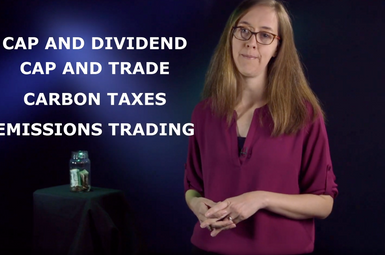
Catherine Hausman, Associate Professor of Public Policy at the U-M Ford School of Public Policy and a faculty research fellow at the National Bureau of Economics Research, explains the concept and arguments for and against a carbon tax.

Despite the initial moratoria on evictions, foreclosures and utility shut-offs under Michigan’s state of emergency, 11 percent of households say they have experienced a utility shut-off or housing hardship since the pandemic started.

Concurrent failures of federal drinking water standards and Michigan’s emergency manager law reinforced and magnified each other, leading to the Flint water crisis, according to Sara Hughes, an assistant professor at U-M's School for Environment and Sustainability.
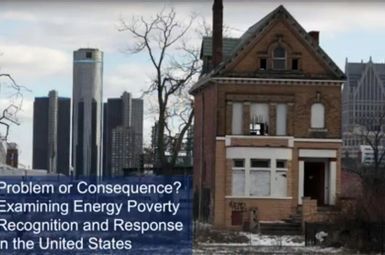
Households that are unable to meet their energy needs—such as heating, cooling, and electric—are known as “energy poor.” But despite the prevalence of energy poor households in the U.S, energy poverty is not recognized as a distinct problem on the federal level. This results in limited responses—and little assistance—to households in need.